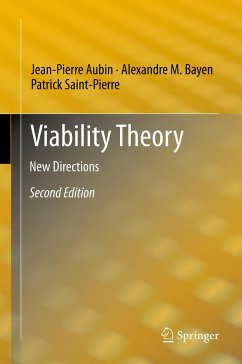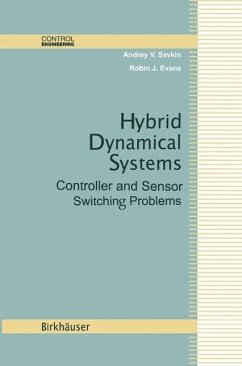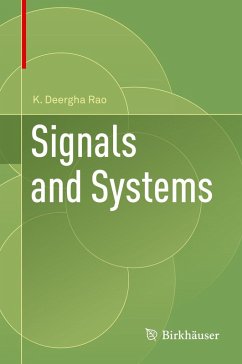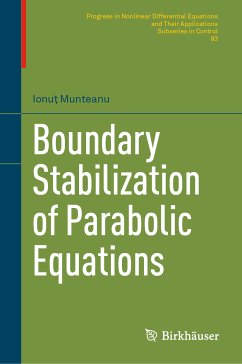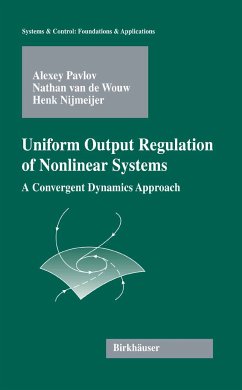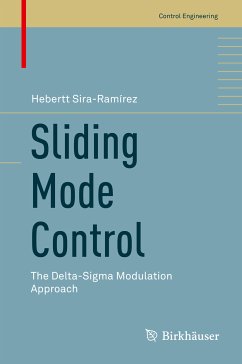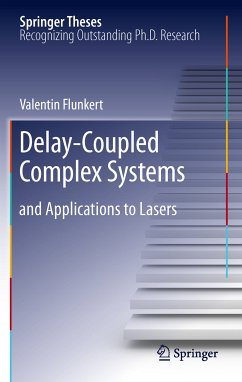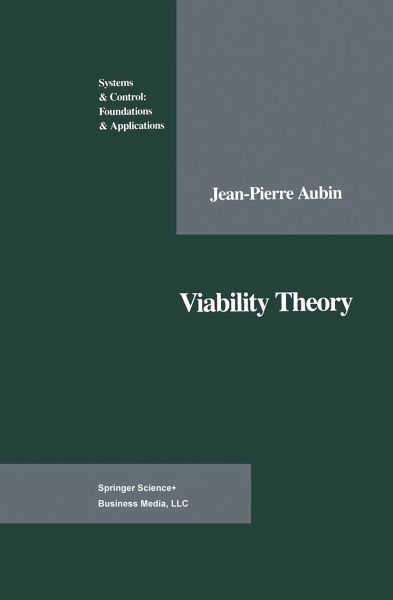
Viability Theory (eBook, PDF)
Versandkostenfrei!
Sofort per Download lieferbar
Statt: 126,95 €**
64,95 €
inkl. MwSt.
**Preis der gedruckten Ausgabe (Gebundenes Buch)
Alle Infos zum eBook verschenkenWeitere Ausgaben:

PAYBACK Punkte
32 °P sammeln!
This work examines viability theory and its applications to control theory and differential games. The emphasis is on the construction of feedbacks and dynamical systems by myopic optimization methods. Systems of first-order partial differential inclusions, whose solutions are feedbacks, are constructed and investigated. Basic results are then extended to the case of fuzzy control problems, distributed control problems, and control systems with delays and memory.Aimed at graduate students and research mathematicians, both pure and applied, this book offers specialists in control and nonlinear ...
This work examines viability theory and its applications to control theory and differential games. The emphasis is on the construction of feedbacks and dynamical systems by myopic optimization methods. Systems of first-order partial differential inclusions, whose solutions are feedbacks, are constructed and investigated. Basic results are then extended to the case of fuzzy control problems, distributed control problems, and control systems with delays and memory.
Aimed at graduate students and research mathematicians, both pure and applied, this book offers specialists in control and nonlinear systems tools to take into account general state constraints. Viability theory also allows researchers in other disciplines-artificial intelligence, economics, game theory, theoretical biology, population genetics, cognitive sciences-to go beyond deterministic models by studying them in a dynamical or evolutionary perspective in an uncertain environment.
"The book is a compendium of the state of knowledge about viability...Mathematically, the book should be accessible to anyone who has had basic graduate courses in modern analysis and functional analysis...The concepts are defined and many proofs of the requisite results are reproduced here, making the present book essentially self-contained." (Bulletin of the AMS)
"Because of the wide scope, the book is an ideal reference for people encountering problems related to viability theory in their research...It gives a very thorough mathematical presentation. Very useful for anybody confronted with viability constraints." (Mededelingen van het Wiskundig Genootschap)
Aimed at graduate students and research mathematicians, both pure and applied, this book offers specialists in control and nonlinear systems tools to take into account general state constraints. Viability theory also allows researchers in other disciplines-artificial intelligence, economics, game theory, theoretical biology, population genetics, cognitive sciences-to go beyond deterministic models by studying them in a dynamical or evolutionary perspective in an uncertain environment.
"The book is a compendium of the state of knowledge about viability...Mathematically, the book should be accessible to anyone who has had basic graduate courses in modern analysis and functional analysis...The concepts are defined and many proofs of the requisite results are reproduced here, making the present book essentially self-contained." (Bulletin of the AMS)
"Because of the wide scope, the book is an ideal reference for people encountering problems related to viability theory in their research...It gives a very thorough mathematical presentation. Very useful for anybody confronted with viability constraints." (Mededelingen van het Wiskundig Genootschap)
Dieser Download kann aus rechtlichen Gründen nur mit Rechnungsadresse in A, B, BG, CY, CZ, D, DK, EW, E, FIN, F, GR, HR, H, IRL, I, LT, L, LR, M, NL, PL, P, R, S, SLO, SK ausgeliefert werden.



